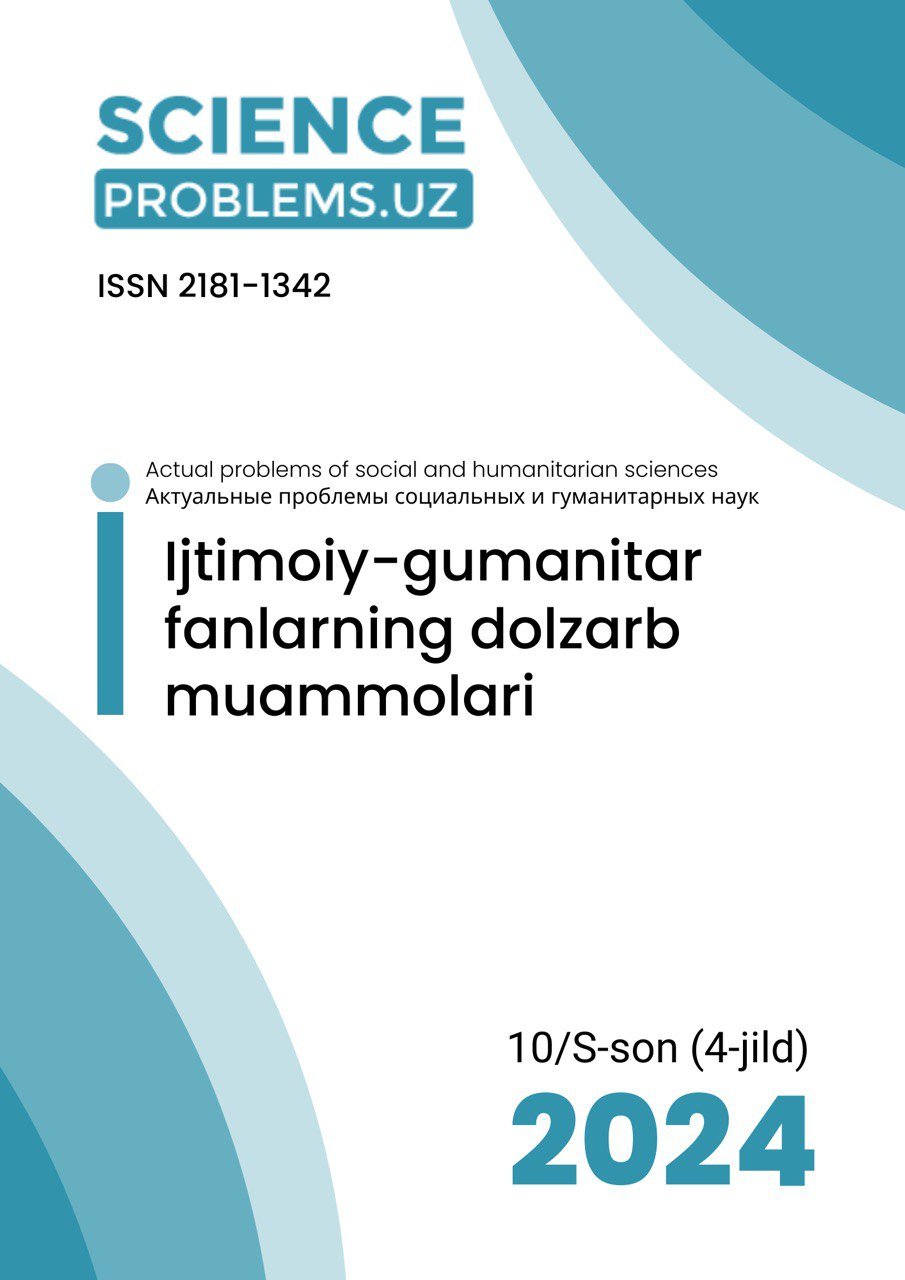XALQARO HUQUQ O'ZBEKISTON VA XITOY O'RTASIDAGI SAVDO-IQTISODIY ALOQALARNI RIVOJLANTIRISHNING ASOSI SIFATIDA
Kalit so'zlar
https://doi.org/10.47390/SPR1342V4SI10Y2024N37Kalit so'zlar
xalqaro huquq, savdo munosabatlari, iqtisodiy hamkorlik, O'zbekiston, Xitoy, JST, ikki tomonlama bitimlarAnnotasiya
Ushbu maqolada O'zbekiston va Xitoy o'rtasidagi savdo-iqtisodiy munosabatlarni rivojlantirishda xalqaro huquqning muhim roli ko'rib chiqiladi. Asosiy savdo shartnomalari, bitimlar va huquqiy mexanizmlarni tahlil qilish orqali xalqaro huquq tamoyillari va institutlari ikki tomonlama savdo va investitsiyalar o'sishiga qanday yordam bergani ko'rsatiladi. Ikki tomonlama iqtisodiy hamkorlikning huquqiy asoslarini har tomonlama tahlil qilish orqali, ushbu tadqiqot Markaziy Osiyoda xalqaro huquq va iqtisodiy diplomatiya o'rtasidagi o'zaro ta'sirni chuqurroq tushunishga hissa qo'shadi.
Manbalar
1. Uzbekistan's trade turnover with China surges to $2.1 bn in 2M24. Available at: Uzbekistan's trade turnover with China surges to $2.1 bn in 2M24 — Daryo News
2. Rakhimov M. Contemporary Central Asia: Balancing Between Chinese and Trans-Asian 'Silk Road' Diplomacy. China's Belt and Road Initiative and its Impact in Central Asia The George Washington University, Central Asia Program. 2018, pp. 110–120.
3. Dadabaev T. Chinese and Japanese infrastructure development strategies in Central Asia. Japanese Journal of Political Science, 2019, vol. 20(2), pp. 129–153.
4. Pirani S. Central Asian Gas: prospects for the 2020s. The Oxford Institute for Energy Studies, 2019. Available at: https://www.oxfordenergy.org/wpcms/wp-content/uploads/2019/12/Central-Asian-Gas-NG-155.pdf
5. Oosterveld W. Xing G. (Ed.), The Belt and Road Initiative Looks East: China's Engagement with ASEAN and the Implications for the EU. Palgrave, Singapore.Securing the Belt and Road Initiative 2017, pp. 179–199.
6. World Bank. World Integrated Trade Solution (WITS) Databas, 2020.
7. People's Republic of China and Republic of Uzbekistan. Treaty of Amity and Cooperation, 2011.
8. Xinhua China, Uzbekistan vow to strengthen ties, cooperation. Xinhua News Agency. 2017.
9. Ohashi, H. The Belt and Road Initiative (BRI) in the context of China's opening-up policy. Journal of Contemporary East Asia Studies, 2018, vol. 7(2), pp. 85–103.
10. Zhao H. The Legal Environment for Uzbekistan's Trade and Investment with China. Russian Central Asian and East European Market, 2013, vol. 12, pp. 16–21.
11. Pan Z. China-Uzbekistan Strategic Partnership and Basic Principles of International Law. Journal of Xinjiang University (Philosophy, Humanities and Social Sciences), 2019, vol. 47(4), pp. 74–79.
12. Shi J. Internationalization of Chinese Contract Law under the Belt and Road Initiative. Law and Social Development, 2020, vol. 26(3), pp. 34–47.
13. The State Council Information Office of the People's Republic of China. China's Policies on Asia-Pacific Security Cooperation, 2016.
14. Xi J. Work Together for a Bright Future of China and Central Asia. Xinhua News Agency, 2018.
15. Liu W. International Trade Frictions in China's Foreign Trade and Countermeasures. International Economics and Trade Research, 2019, vol. 35(10), pp. 4–16.
16. Huang L. [On China's Compliance with International Economic Law in Building the Belt and Road]. Law Review, 2021, vol. 39(1), pp. 141–150.








